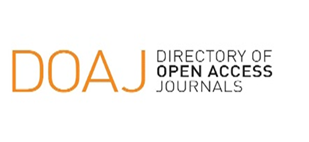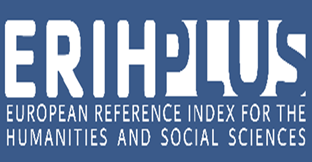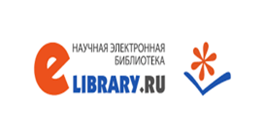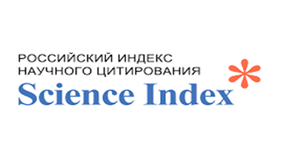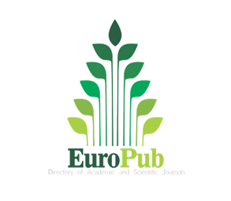The concept of a perfect human in the poetics of zhyrau
Views: 302 / PDF downloads: 594
DOI:
https://doi.org/10.32523/2664-5157-2022-2-72-85Keywords:
conceptual methodology, zhyrau, Sufism, perfect human, religious thesaurus, value, text of poemsAbstract
Zhyrau are Akyns – storytellers of a special art who create and disseminate the oral poetic
creations of the people. The oral epic tradition existed in ancient Greece, Arabia, among the Turkic
peoples and until the 40-50s of the XX century – in Albania, Yugoslavia, Bulgaria, and Macedonia. The
main feature of the Zhyrau poetic tradition is that the legends are passed down from generation to
generation orally rather than in writing. The worldview in Zhyrau poetry is determined by universal
human values such as life and death, joy and sorrow, homeland, which are revealed in the conceptual
intentions of the national consciousness, namely the concepts of a perfect human being, the creation
of the world and the fatherland.
The article is devoted to the understanding of Sufism in the work of Kazakh zhyrau, especially the
numerous zhyrau of Western Kazakhstan. The authors note that in the study of Sufism there are still no
systematic studies that show the role of Sufism in the spiritual and moral development of a person, his
cultural and intellectual development. Among the European scholars to whom the authors refer, there
are contradictory opinions about the main postulates of Sufism.
The authors state that the concept of ‘kamili insan’, a perfect person, is one of the main purposes
of the teachings of Sufism, the attainment of full human individuality through spiritual purification,
asceticism and a person’s rejection of material values. In addition, other important terms of Sufism
such as zіkіr, pіkіr etu, shukіr etu, taubaga kelu, taglym, and iman are subjected to philosophical,
theological, historical, cultural and semantic analysis in the article. Poetic texts of zhyrau-akyns served
as illustrative material for this analysis.
Downloads
Reference
Vorkachev S.G. Metodologicheskie osnovaniya lingvokonczeptologii [Methodological foundations of linguoconceptology]. In: Teoreticheskaya i prikladnaya lingvistika [Theoretical and Applied Linguistics]. Issue. 3: Aspects of metacommunicative activity]. (Voronezh, 2002, 204 p.) [in Russian].
Islam. Enciklopedicheskij slovar’ [Encyclopedic Dictionary]. Moscow, Nauka, 1991. 315 p. [in Russian].
Myrzakhmetuly M. Turkіstanda tugan ojlar [Thoughts born in Turkestan]. Almaty, Sanat, 1998. 368 p. [in Kazakh].
Begalinova K. Sufizm kak fenomen musul’manskoj duhovnosti [Sufism as a Phenomenon of Muslim Spirituality]: diss. ...filol. nauk. [Doctoral Dissertation of Philology]. Almaty, 1999. 278 p. [in Russian].
Esim G. Sana bolmysy [The essence of consciousness]. Almaty, Nauka, 1994. 224 p. [in Kazakh].
Til tangbaly ahyndap [Poets with language symbols]. Hurastyrghan Zh. Zhylkyshyuly [Compiled by Zh. Zhylkyshyuly]. – V. 2. Aktau, 2016. 432 p. [in Kazakh].
Til tangbaly ahyndap [Poets with language symbols]. Hurastyrghan Zh. Zhylkyshyuly [Compiled by Zh. Zhylkyshyuly]. – V. 3. Aktau, 2016. 416 p. [in Kazakh].
Til tangbaly ahyndap [Poets with language symbols]. Hurastyrghan Zh. Zhylkyshyuly [Compiled by Zh. Zhylkyshyuly]. – V. 5. Aktau, 2016. 384 p. [in Kazakh].
Abdul-Kadyr I. Istina sufizma [The truth of Sufism]. Moscow, Ansar, 2004. 269 p. [in Russian].
Khozha Ahmet Yasawi Hikmet [Hikmet]. Almaty, Zhalyn, 1998. 652 p. [in Kazakh].
Knysh A. Musul’manskij misticizm [Muslim mysticism]. Moscow-Saint-Petersburg, Dilia, 2004. 453 p. [in Russian].
Til tangbaly ahyndap [Poets with language symbols]. Hurastyrghan Zh. Zhylkyshyuly [Compiled by Zh. Zhylkyshyuly]. – V. 4. Aktau, 2016. 400 p. [in Kazakh].
Arabsha-qazaqsha sozdіk [Arabic-kazakh dictionary]. – V. I. Almaty, 1984. 420 p. [in Kazakh].
Abdrakhmanov B. Mangystau zhane sufizm [Mangystau and Sufism]. Zhinah: Abajtanu ohulary, 5 shyzharyluy [Reading Abaeology Issue 5]. Almaty, 2004. 155 p. [in Kazakh].
Radlov V.V. Opyt slovarya tyurkskih narechij [Experience of the dictionary of Turkic dialects]. Saint Petersburg, 1911. [in Russian].
Rabhuzi Hissa-sul-anbiya [Epic of the saints]. Almaty, Sanat, 2001. 243 p. [in Kazakh].
Til tangbaly ahyndap [Poets with language symbols]. Hurastyrghan Zh. Zhylkyshyuly [Compiled by Zh. Zhylkyshyuly]. – V. 1. Aktau, 2016. 432 p. [in Kazakh].
Hazah tіlіnіng tusіndіrme sozdіgі. – Т. 8. [Explanatory dictionary of the Kazakh language, – V. 8.]. Almaty, Gylym, 1986. 591 p. [in Kazakh].
Bizakov S. Sinonimder sozdіgі [Dictionary of synonyms]. Almaty, Arys, 2007. 640 p. [in Kazakh].
Downloads
Published
How to Cite
Issue
Section
License

This work is licensed under a Creative Commons Attribution-NonCommercial 4.0 International License.







